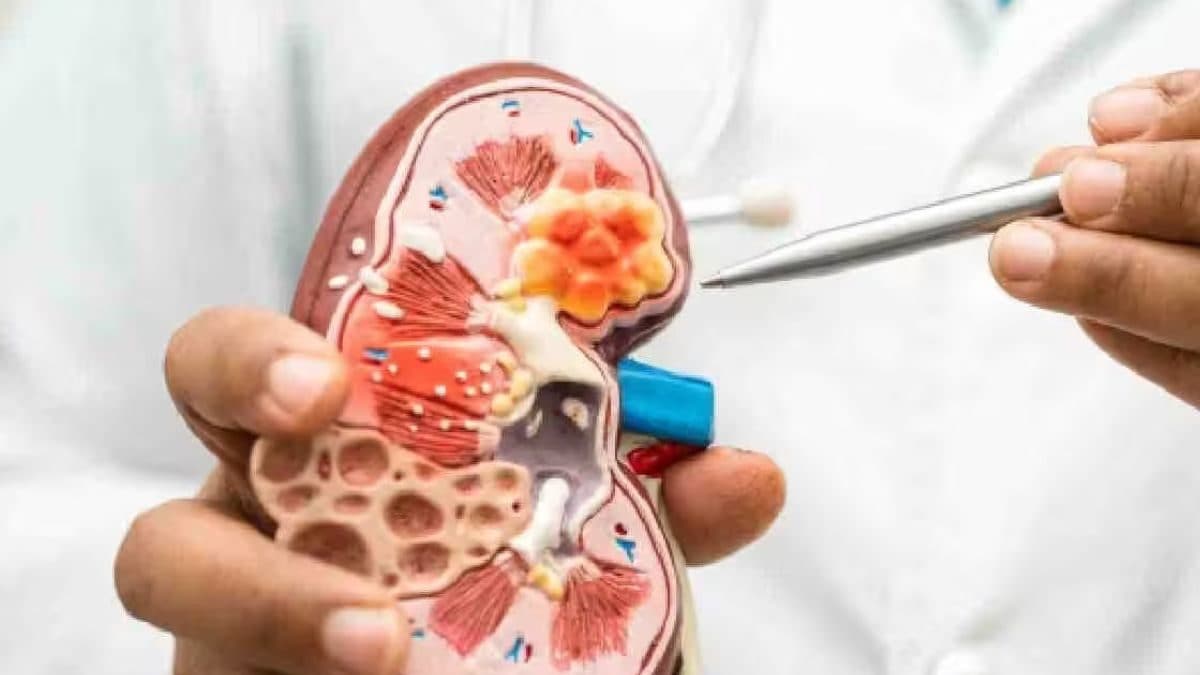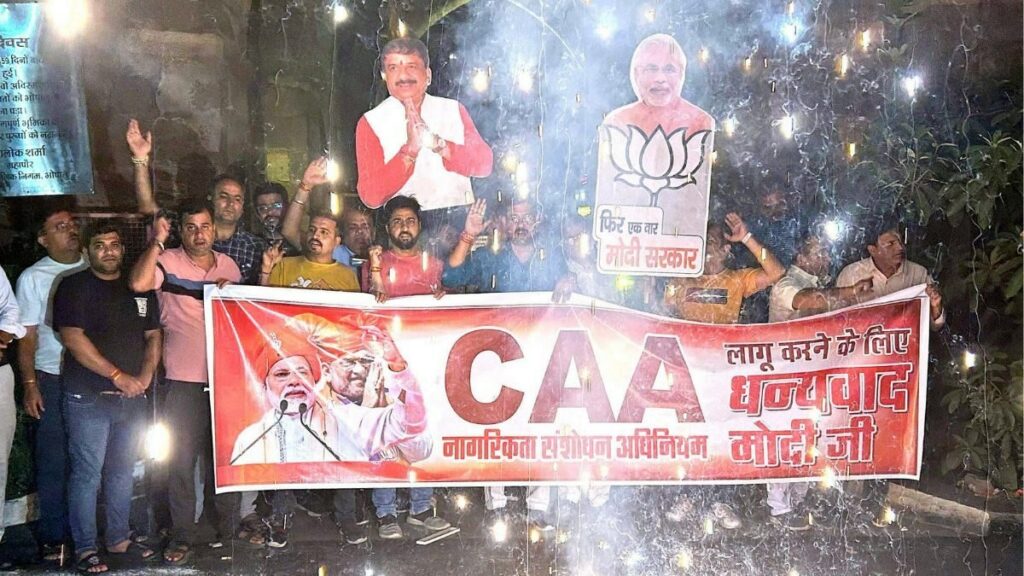Doctors are seeing a surge in kidney stone cases, especially among youngsters as many Gen Z and millennials are heavily consuming processed foods, along with sugary and salty snacks, and drinking less water.
Experts told News18 that the incidence of kidney stones has gone up almost three times – from 3% to 10% – in the last few years, especially among those aged 15 to 35 years.
In fact, north India is part of the so-called ‘stone belt’ with an incidence of 15% in the general population – blame their consumption of excess dairy products rich in fat and calcium yet poor in protein causing increased calcium excretion in urine.
According to a study published in February 2023, the prevalence of kidney stones in India also reflects worldwide prevalence and stands at around 12%, and is relatively more common in the north India, where it is 15%.
“While the formation of kidney stones is extremely common in genetically predisposed families with very high lifetime risk, however, in the past 10 to 15 years or so, the general public has shown a steep rise in the incidence of renal stones, especially in Gen Z,” Dr Shri Ram Kabra, director, department of nephrology and kidney transplant medicine at Marengo Asia Hospital, Faridabad, told News18. “Men are more prone to developing kidney stones than women, with a nearly double prevalence rate.”
Several doctors made similar observations.
“We are witnessing a surge in the increase in kidney stones among Gen Z and millennials, which can be attributed to several factors,” said Dr Bismay Kumar, consultant, nephrology and kidney transplant at Narayana Hospital, Howrah.
Kumar said he sees two to three patients in a month from the very young population.
Dr Rajesh Aggarwal, chief, nephrology at Delhi-based Sri Balaji Action Medical Institute, expressed concern saying that “we are certainly getting at least one case in a month. The rise in kidney stones among Gen Z and millennials is concerning.”
The reason is poor dietary choices and sedentary lifestyles. Doctors have been noticing that young adults are not consuming enough water, leading to chronic dehydration, which is a significant risk factor for kidney stone formation.
There is no specific research addressing the increase in kidney stone incidence in Generation Z or millennials compared to previous generations, however, Dr Shafiq Ahmed, director of urology, andrology and renal transplant at BLK Max Super Speciality Hospital, Delhi, estimated that the incidence of stones has gone up almost three times – from 3% to 10%.
Doctors indicated the trend in India is somewhat similar to the global trend. For instance: The data from the United States National Health and Nutrition Examination Survey (NHANES) has shown a steady increase in the prevalence of kidney stones over the past few decades. These trends have been observed across different age groups and demographic categories.
Experts say we are probably not taking our kidney health seriously enough.
What are the Symptoms?
Kidneys filter about half a cup of blood every minute, getting rid of toxins and extra water by turning it into urine. However, if we don’t drink enough water and stay hydrated, those toxins can stay in our kidneys for longer, which can harm them apart from forming kidney stones.
Kidney stones come in various sizes, ranging from as tiny as a grain of sand to as large as a golf ball.
“While historically more common in adults, kidney stones are increasingly affecting children and young adults,” Dr Partha Karmakar, consultant, nephrology at NH RN Tagore Hospital.
From intense pain in the lower back on one side to persistent stomach ache or fever with chills or vomiting – the larger the stone, the more pronounced the symptoms become.
Overall, kidney disease is a significant public health concern in India, with high death rates. The Million Death Study estimated a 50% increase in deaths due to chronic kidney disease (CKD) between 2001–2003 and 2010–2013. In fact, several surveys have shown a high population prevalence of CKD with as many as one out of every five adults in high-prevalence areas having the disease.
What Forms Kidney Stones?
Kidney stones, or renal calculi, are solid crystalline mineral deposits that develop in the kidneys or urinary tract.
“These stones manifest in various types, such as calcium stones (associated with calcium oxalate or calcium phosphate), struvite stones (linked to urinary tract infections), uric acid stones (formed in acidic urine, often in individuals with conditions like gout or high-purine diets), and cystine stones (rare and caused by a genetic disorder leading to excessive cystine excretion),” Karmakar explained.
While genetics play an important role in forming kidney stones, lifestyle factors usually contribute the most.
The top reasons for stone formation include poor water intake.
“Inadequate hydration can lead to concentrated urine, which increases the risk of crystal formation and kidney stone development. Generation Z individuals may be more prone to dehydration due to factors such as busy lifestyles, reliance on sugary or caffeinated beverages, and carbonated drinks,” Ahmed from BLK Max Super Speciality Hospital said.
Experts claim that if people are eating lots of salty or sugary foods, or processed stuff or not eating fruits and vegetables, they are asking for kidney stones to form.
“Gen Z and Millennials are more inclined towards processed foods. Consuming diets high in processed foods, sugar, and sodium can lead to kidney stones over some time if someone doesn’t pay attention to adequate hydration and essential nutrients,” Kumar from Narayana Hospital said.
Eating foods loaded with salt and sugar can mess up the balance of minerals in urine, making it more likely for kidney stones to form. In fact, studies have also found that stress plays an important role in stone formation. It says that chronic stress can lead to hormonal imbalances which can affect kidney function and increase the likelihood of kidney stone formation.
What are the Solutions?
According to experts, the solutions are quite simple if started early and in routine.
For instance: You can consume citrus fruits such as lemons and oranges that contain citrates that can prevent calcium stone formation.
Leafy vegetables like spinach are rich in calcium and magnesium and reduce the risk of stones.
Experts said the treatment for removing kidney stones is tailored to factors like stone characteristics and symptom severity. Pain management involves medications, while increased hydration aids in passing smaller stones. Medical therapy includes medications to dissolve stones or prevent their formation.
“Non-invasive methods like Extracorporeal Shock Wave Lithotripsy (ESWL) break down stones for easier passage, with surgical procedures reserved for larger stones resistant to natural expulsion, such as ureteroscopy or percutaneous nephrolithotomy,” said Karmakar.











